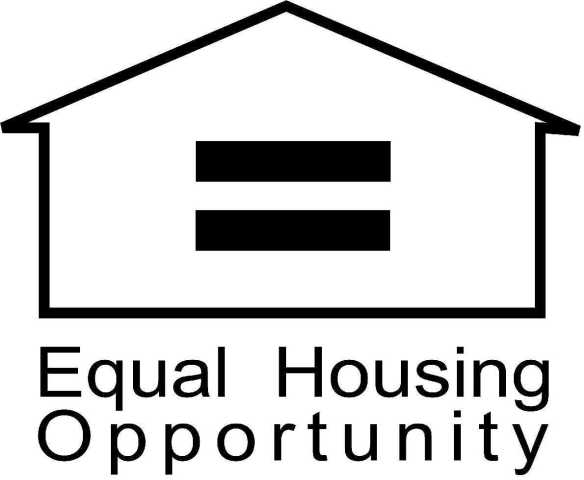Lost documents, robo-signing, getting different messages from different bank departments, broken verbal promises for modifications, loan servicing being transferred, and unexplained modification denials- are these all things of the past with settlements like the Independent Foreclosure Review, Attorney General Settlement, and here in California, the new Homeowner Bill of Rights?
Not exactly.
At the national level, the Consumer Financial Protection Bureau recently made its complaint database public and complaints about mortgage loan servicing issues represent 55% of the 90,000 complaints. The Bureau is making the data public and asking for people’s ideas on how to use the data. As an example, the Bureau created a sort-able spreadsheet that allows users to sort by the type of complaint, company, etc.
HousingWire recently touched on some of these issues in their April 23rd article, “Loan mods, inaccessible websites irritate servicing customers the most.” The article describes Craig Martin’s recent presentation where he said that loan modification and inaccessible/difficult to maneuver websites are two top complaints of homeowners. Martin is with J.D. Power and Associates, which publishes an annual rating on mortgage loan servicers.
In J.D. Power and Associates’ most recent survey of 5,623 homeowners , BB&T, Regions Mortgage, SunTrust Mortgage, Chase, and PNC Mortgage were ranked the highest quality. In comparison, the five lowest rated banks/servicers were Aurora Loan Services, OneWest Bank (formerly Indymac), Homeward Residential, Nationstar Mortgage, and Ocwen Loan Servicing. You can see the full chart of all the banks on page 4: J.D. Power and Associates Reports: Amid Record-Low Interest Rates and Improved Loan Modification Programs, Customer Satisfaction Increases
If you live in San Jose or Sunnyvale and you’re struggling with your mortgage, you may want to sit down and meet with a housing counselor from ForeclosureHelp. At your appointment, they’ll review your mortgage, your income/monthly budget, and then help you understand your eligibility for programs like HAMP, HARP, in-house modifications, and Keep Your Home California– a program that over 600 Santa Clara County residents have already accessed and used.
The services at ForeclosureHelp are paid for through a federal Community Development Block Grant from the City of San Jose and from a grant from the City of Sunnyvale- so there is no charge to the homeowner.
Other resources to review:
The CFPB takes action against mortgage insurers to end kickbacks to lenders
Maggie’s Five Rules for Working with Your Bank or Servicer
California Monitor (for Attorney General Settlement with 5 largest banks) Website
###
Foreclosure Help is a coalition program funded by the city of San Jose through a HUD Community Development Block Grant and the city of Sunnyvale, and we can directly assist homeowners and tenants in San Jose and Sunnyvale who are facing foreclosure. However, we are unable to assist homeowners/former homeowners in other cities and states. If you need housing counseling, we suggest using the interactive map on HUD’s website.
ForeclosureHelp partners include the Housing Trust Silicon Valley (lead agency), the Fair Housing Law Project at the Law Foundation of Silicon Valley, SurePath Financial Solutions, Project Sentinel, Asian Inc, Neighborhood Housing Services of Silicon Valley, and the Santa Clara County Association of Realtors.
If you are a homeowner living in San Jose or Sunnyvale and are struggling with your mortgage, please contact ForeclosureHelpSCC, a program funded by the City of San Jose through a HUD Community Development Block Grant and the City of Sunnyvale at (408)-293-6000 or visit us: www.foreclosurehelpscc.org
Our housing counselors can help you evaluate your options, learn more about federal and state programs that may help you with your mortgage issues, and will help you create a plan forward.
Please note: All content included in the ForeclosureHelpSCC blog is provided for information only and should NOT be considered legal or tax advice. If you have any questions, please feel free to contact us on our hotline: (408)-293-6000, or visit our website: www.foreclosurehelpscc.org or send us an email: help@foreclosurehelpscc.org.
Si usted es dueño de una casa en San José o en Sunnyvale y están luchando con su hipoteca, por favor póngase en contacto con ForeclosureHelpSCC, un programa financiado por la ciudad de San José y la ciudad de Sunnyvale, al (408) -293- 6000, o visite nuestro sitio: www.foreclosurehelpscc.org.Nuestros consejeros puede ayudarle a evaluar sus opciones, aprender más acerca de los programas federales y estatales que pueden ayudarle con sus problemas de hipoteca, y le ayudará a crear un plan para seguir.
Por favor, tenga en cuenta: Todos los contenidos incluidos en el blog ForeclosureHelpSCC se proporciona únicamente a título informativo y no debe ser considerada como consejo legal o fiscal. Si usted tiene alguna pregunta, por favor no dude en contactarnos a nuestra línea directa: (408) -293-6000, o visite nuestro sitio:www.foreclosurehelpscc.org o envíenos un correo electrónico: help@foreclosurehelpscc.org.
Nếu bạn là một sinh hoạt chủ sở hữu nhà ở San Jose hoặc Sunnyvale và đang đấu tranh với nợ nhà, xin vui lòng liên ForeclosureHelpSCC, một chương trình được tài trợ bởi thành phố San Jose và thành phố của Sunnyvale ở (408) -293-6000 hoặc truy cập trang web của chúng tôi: www.foreclosurehelpscc.org.
Nhân viên tư vấn của chúng tôi đã được HUD chấp thuận có thể giúp bạn đánh giá các lựa chọn của bạn, tìm hiểu thêm về các chương trình của liên bang và tiểu bang có thể giúp bạn với các vấn đề thế chấp của bạn, và sẽ giúp bạn tạo ra một kế hoạch phía trước.Xin lưu ý: Tất cả các nội dung trên Blog ForeclosureHelpSCC được cung cấp thông tin duy nhất và không nên coi là hợp pháp hoặc tư vấn thuế. Nếu bạn có bất cứ câu hỏi , xin vui lòng liên hệ với chúng tôi qua đường dây nóng: (408) -293-6000, hoặc truy cập vào trang của chúng tôi: http://www.foreclosurehelpscc.org hoặc gửi email cho chúng tôi:help@foreclosurehelpscc.org.
FAIR HOUSING AND ANTI-DISCRIMINATION POLICY
It is the policy of ForeclosureHelp not to discriminate against any person because of that person’s race, color, religious creed, sex (gender), sexual orientation, marital status, national origin, ancestry, familial status (households with children under the age of 18), source of income, disability, medical condition or age. Color or “ethnic group identification” means the possession of the racial, cultural or linguistic characteristics common to a racial, cultural or ethnic group, or the country or ethnic group from which a person or his or her forebears originated. As required by law, we agree to take the affirmative steps needed to further fair housing.
ForeclosureHelp will consider any and all requests for reasonable accommodation in the application of its rules, policies, practices, and services, and in the use of its physical structures, in accordance with the requirements of state and federal laws. You can ask ForeclosureHelp to consider any reasonable accommodation you may have. Please consult with the Program Manager (408-293-6000 or via email: help@foreclosurehelpscc.org) to request this accommodation.
Related articles
- ForeclosureHelp Update: CitiGroup and Wells Pause Foreclosures; MN Passes Homeowner Bill of Rights; NY AG Updates Complaint Against BOA and Wells for Violating AG Settlement (foreclosurehelpscc.wordpress.com)
- Do Student Loans Contribute to Foreclosure Crisis? What We’ve Seen from Homeowners in San Jose and Sunnyvale, CA (foreclosurehelpscc.wordpress.com)
- HARP Refinance Option for Homeowners in San Jose and Sunnyvale (foreclosurehelpscc.wordpress.com)




